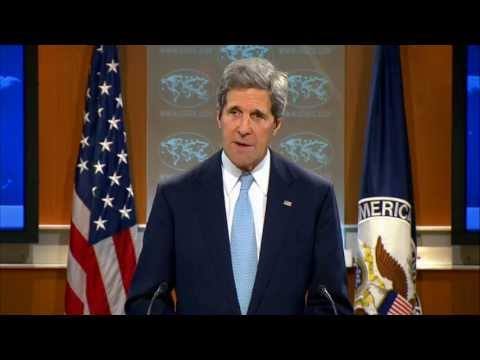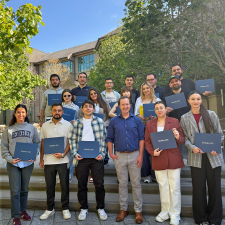“The fundamental struggle for dignity has been a driving force in human history worldwide, and what drives us toward it is a set of universal values and aspirations. Life, liberty, and the pursuit of happiness are ideals that cannot be contained by national boundaries or ocean shores. That is why it is especially troubling that so many people in so many places face grotesque restrictions on their freedoms and rights from their own governments”, with these words the US Secretary of State John Kerry presented the Country Reports on Human Rights Practices for 2014
Introducing the general tendencies in the sphere of human rights practices, he continued his preface: “We at the Department of State will continue to press governments to uphold fundamental freedoms. We remain committed to advocating on behalf of civil society and speaking out for the protection of human rights for all individuals. Now in their 39th year, these annual Congressionally-mandated reports provide a picture of how the promise of the Universal Declaration of Human Rights is being fulfilled. They help promote awareness regarding the reality of human rights in many of the dark corners of the world and the glimpses of light that brave and committed human rights defenders provide. They are used by the Department of State and other government agencies needs to guide American foreign policy, and by Congress in its determination and allocation of foreign aid and security sector assistance. They also signal to the human rights defenders and activists under siege that the U.S. government recognizes their struggle and stands with civil society in its unending effort to preserve human rights”.
In the Armenia 2014 Human Rights Report the most significant human rights problems are presented, primarily mentioning systemic corruption and lack of transparency in government, the limited independence of the judiciary, and limitations on the ability of citizens to change their government. Allegations of persistent corruption at all levels of government undermined the rule of law, although the government took limited steps to punish corruption by low and mid-level officials. Lack of transparency in government impeded the public’s ability to hold officials accountable for their actions. The executive branch continued to subject the courts to political pressure, resulting in some politically motivated prosecutions and sentencing, and the Court of Cassation exercised considerable control over judges’ decisions at all levels. There continued to be reports of vote buying and large-scale abuse of administrative resources by the ruling RPA aimed at sustaining its electoral majorities at both the national and local levels. Other reported abuses included suspicious deaths in the military under noncombat conditions and continued hazing and other mistreatment of conscripts by officers and fellow soldiers. Perpetrators were not held accountable for such actions even though authorities made efforts to improve discipline within the armed forces, including by utilizing the country’s civilian legal system to enforce military laws and regulations and giving human rights training to officers and commanders. Police allegedly continued to employ torture to obtain confessions and reportedly beat citizens during arrest and interrogation. Many prisons were overcrowded, unsanitary, and lacking in medical services for inmates. Authorities continued to arrest and detain criminal suspects without reasonable suspicion and to detain individuals arbitrarily. Trials were often lengthy, and courts failed to enforce laws providing for fair trials. Authorities did not adequately enforce laws prohibiting government intrusion on privacy and unlawful searches. Traditional media lacked diversity of political opinion and objectivity of reporting, and there were several incidents of violence toward journalists in connection with citizens’ protests throughout the year. Government restrictions affected some minority religious groups, although most registered religious groups reported no significant legal impediments to their activities. Members of religious minorities suffered from societal discrimination. Domestic violence remained a problem but largely went unreported to authorities. A significant imbalance in the ratio of boys to girls at birth pointed to gender-biased sex selection. Human trafficking was a problem, but authorities made efforts to combat it. Persons with disabilities experienced discrimination in almost all areas of life. Military and prison authorities subjected lesbian, gay, bisexual, and transgender (LGBT) persons to abuse and discrimination; societal discrimination against them also was a problem. Society stigmatized persons living with HIV/AIDS. The government limited workers’ rights and weakly enforced labor laws. Although the government took some steps to punish officials in the security forces and elsewhere, officials often continued to commit violations with impunity. As of year’s end, authorities did not hold anyone accountable for the 10 deaths that occurred following postelection clashes in 2008.
The full report on Armenia`s human rights practices can be found here.















